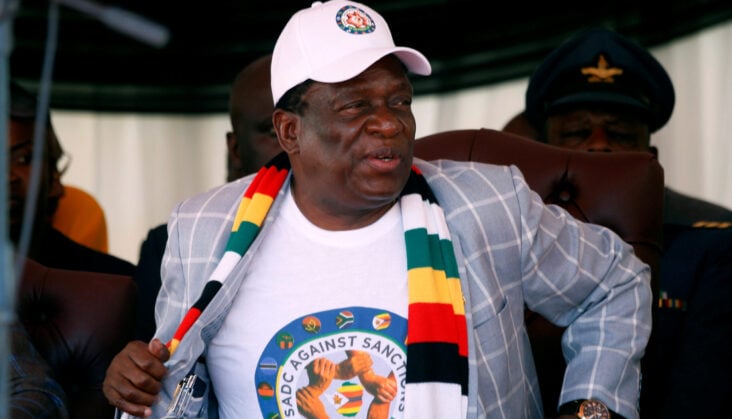Zimbabwean President Emmerson Mnangagwa has been re-elected for a second term, winning a final five-year mandate in a contentious election that has raised concerns over the country’s democratic process. The results were announced late Saturday, a surprising announcement as the final figures were not expected until Monday or even Tuesday.
Mnangagwa, often referred to as “the crocodile” due to his guerrilla warfare past, secured 52.6% of the votes, according to the Zimbabwe Electoral Commission. His main rival, Nelson Chamisa, leader of the opposition party, managed to secure 44% of the votes. Despite the victory, Chamisa’s party has rejected the results, citing a lack of proper verification.
The win ensures that Mnangagwa’s ruling party, the Zimbabwe African National Union – Patriotic Front (ZANU-PF), continues its unbroken grip on power for over four decades. ZANU-PF has held the governmental leadership since the country gained independence from white minority rule in 1980.
International election observers have raised concerns about the electoral environment and reported instances of intimidation against Chamisa’s supporters. The observers specifically highlighted the activities of an affiliate organization called Forever Associates of Zimbabwe, which allegedly collected personal details of voters entering polling booths. These activities have prompted calls for them to be declared criminal offenses.
Furthermore, local vote monitors were arrested and taken to court on allegations of subversion, leading critics to believe that the charges were politically motivated and aimed at suppressing dissent.
The election itself was marred by several logistical issues. Originally scheduled for Wednesday, voting was extended to Thursday due to delays in printing ballot papers. The delay contributed to a sense of tension and uncertainty among voters.
Mnangagwa, who served as Mugabe’s vice president before taking power in a coup in 2017, previously won a disputed election against Chamisa in 2018. The closely contested result sparked violence and demonstrations, resulting in fatalities.
Although Mnangagwa’s victory has secured another term for ZANU-PF, it is unlikely to alleviate the concerns of many Zimbabweans who have been grappling with economic challenges for years. The country has a long history of economic instability, with hyperinflation in 2007-2009 leading to the abandonment of its currency.
In the build-up to the election, the opposition alleged that their rallies were disrupted by the police and that their supporters were subjected to intimidation and violence by ZANU-PF supporters. International human rights groups, including Amnesty International and Human Rights Watch, have accused Mnangagwa’s administration of using the police and courts to suppress dissent.
The re-election of Mnangagwa might further exacerbate the growing frustration among Zimbabweans who face a currency crisis, soaring food prices, a struggling healthcare system, and a lack of employment opportunities.
The opposition party has not yet indicated its next move following the rejection of the election results. In the meantime, citizens in Harare and across the country have responded to the outcome with scepticism and disappointment. Many individuals have expressed thoughts of leaving the country in search of a better future.
As Zimbabwe contemplates another term under the leadership of Mnangagwa, questions surrounding the country’s democratic processes and the prosperity of its citizens remain at the forefront of the national conversation. The outcome of this controversial election is likely to be closely monitored by international observers and human rights organizations concerned about the state of democracy in Zimbabwe.
Image Credit: REUTERS/Philimon Bulawayo




